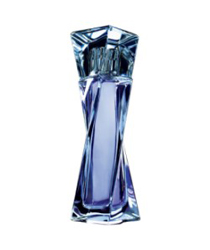
PHLO NEX AFTERSHAVE COLOGNE TRIAL
The Loving Soul completes each trial by obeying the providential advice of supernatural agents - ants, a river-bed reed, and an eagle - and she is transformed in the process. Just as a reminder, after Cupid has fled Psyche when she has exposed him in the dark with oil lamp and knife (an incident echoed in Troubled Blood’s office scene after Strike hits Robin at the American Bar), Psyche passes three impossible trials set for her by Cupid’s mother, Venus. Unless we’re meant to think of the Narcissa in the finale of Deathly Hallows, a mother who risks her life to save Harry Potter in the Forbidden Forest, I don’t think those associations connect with the perfume chosen by Strike and Robin at the end of Troubled Blood in mutual agreement, as “best mates.” It’s possible that this is another pointer to the myth of Cupid and Psyche, specifically, to the skill Psyche must learn to complete Venus’ last trial. There is also, for Rowling Readers at least, the echo of ‘Narcissa Malfoy,’ Draco’s mother, in the name. The last syllables of this name, sychos, are assonant with the Greek word for ‘soul,’ psyche, at least as it is most often used in English, in the word ‘psychology.’ ‘Philosychos’ in this reading means ‘loving the soul’ or just ‘loving soul’ rather than ‘friend of the fig tree.’ It would be difficult to find a more fitting name than this for Robin, amateur psychologist and representative of the soul in the embedded mythology of Psyche and Cupid in Cormoran Strike.Īnd ‘Narciso,’ the perfume the Detective Duo choose as Robin’s fragrance in the story finale? Hard to miss the pointer there to the myth of Narcissus in that, though it is really the name of the perfume company’s owner. I think Rowling uses this perfume because, the Greek word for ‘fig tree’ not being a commonplace even among classicists, she expects her readers to skip over the literal meaning of the perfume and jump to the obvious association. One could make something of the symbolic meaning of figs here - Christ curses a fig tree and there is the theory that it was a fig rather than an apple tree that grew in the Garden of Eden and whose fruit was forbidden to Adam and Eve - but I won’t.

After around 15 minutes the fragrance warms with a sugared spiced cedar and a light soapiness adding more comfort and security to an already comforting perfume.ĭiptyque says the perfume is “an ode to the entire tree: the green, pungent freshness of the leaves, the wood warmed in the sun, the milky flavor of the fruit.” Instead, the perfume is subdued and pulsates within the heart of the jungle with a comforting earthiness. For some reason I was expecting this to be sweet, but it’s far from that. There’s a creaminess that helps to create what feels like a lush carpet of wood and green and mildly ripening fruit. It’s green and feels earthy and rooty like vines that are meeting the ground and attaching themselves to the earth below. Philosykos opens with one second of sparkling ozone followed by this inviting coconut and fig. ‘Philosychos’ in Greek means “ friend of the fig tree,” a fitting name for a scent described this way at a website that reviews perfumes: The names of Robin’s baseline perfume, Philosychos, and the one she and Strike choose at story’s end, Narciso, both point less to the bedroom than to Robin’s allegorical, psychological, and mythological role in the series. Strike, it must be recalled, balks at buying Robin a perfume for Christmas, not only because his flu bug prevents him from being able to smell anything (or think clearly), but also because the names of scents recommended to him mean “In Your Arms” and “Ravishing Musk.” Strike tells Robin in the last chapter trip to Liberty’s perfume counter that these names sounded to him like “Shaggable You,” which idea makes Robin laugh out loud. What is left unnoted, beyond the connection to be made between the perfumes mentioned and the identity of the person who wears it, is the importance of the perfume names. The anonymous compilier notes on that page without further elucidation that “Perfumes appear to be an important and recurring theme in Troubled Blood, emphasizing identity and how we want to be seen versus how other people see us.”

The various perfumes mentioned in Troubled Blood have been catalogued at the always helpful StrikeFans website. As much as perfumes play an outsized role in Troubled Blood, the name of the perfume is worth a moment’s reflection because its meaning is suggestive of Robin’s role in the allegorical drama that the Cormoran Strike mysteries are. Strike and Matthew both liked it, perhaps their only point of agreement beyond loving Robin herself. Robin Ellacott-Cunliffe’s perfume of choice until the dissolution of her marriage was Philosychos by Diptyque.


 0 kommentar(er)
0 kommentar(er)
